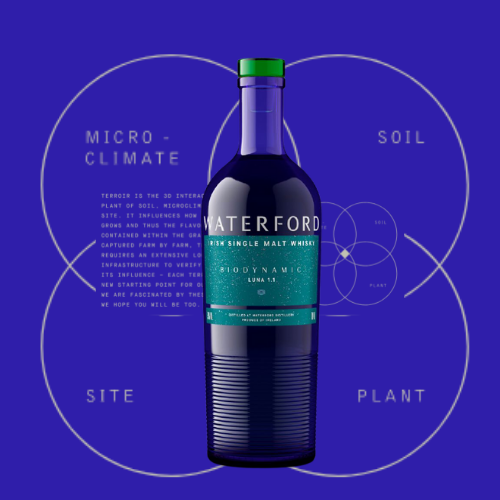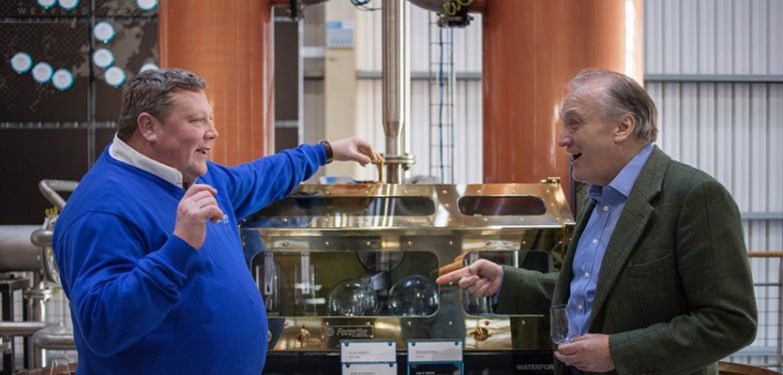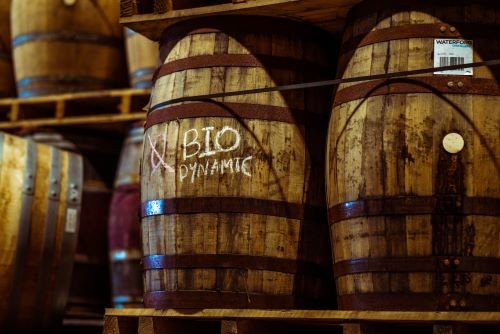When talking about whiskey it’s always the flavour, the in-depth aroma, hint of bitterness and especially the role of wood in the evolution of the essence. Then there’s another concept which includes all those above-stated factors but the sole focus lies on the type of grain used i.e barley and the ‘terroir’. A fancy word? Well, ‘terroir’ is a term derived from the French language popular in the wine industry and slowly paving its way to the world of whiskey. It translates to all the environmental factors that affect a crop’s composition or character. But why am I introducing you to this term? The concept of ‘Biodynamic’ whiskey by Waterford Distillery has uplifted the importance of this French term with their upcoming release – Luna 1.1. Get ready to read about a whiskey that exhibits the true value of sustainability.
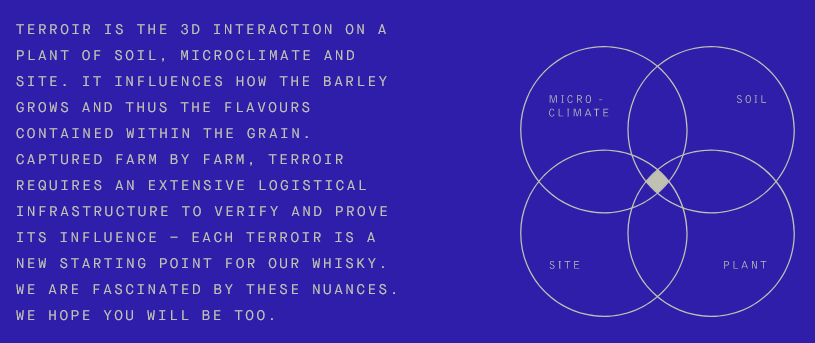

The peculiarity of LUNA 1.1
Luna 1.1 is set to be the world’s first biodynamic whiskey to be released into the world of spirits. To achieve the status of biodynamic, Waterford Distillery worked with three barley farmers in Ireland dedicated to the sole practising of biodynamic agriculture. A spirit curated with the essence of time and efforts invested in the notion of producing whiskey based on sustainability. Luna 1.1 is unique due to the concept of biodynamics behind it which adds a natural and more emphasized flavour to the spirit. The base of this whiskey – barley is grown, sought out with ultimate care and rapt attention is infused to all the factors affecting the main character – barley.
“Many of the world’s very greatest winemakers follow biodynamic farming to produce the most exquisite flavors… But nobody has released a whisky made from purely locally grown biodynamic barley – until now.”
By Mark Reynier.
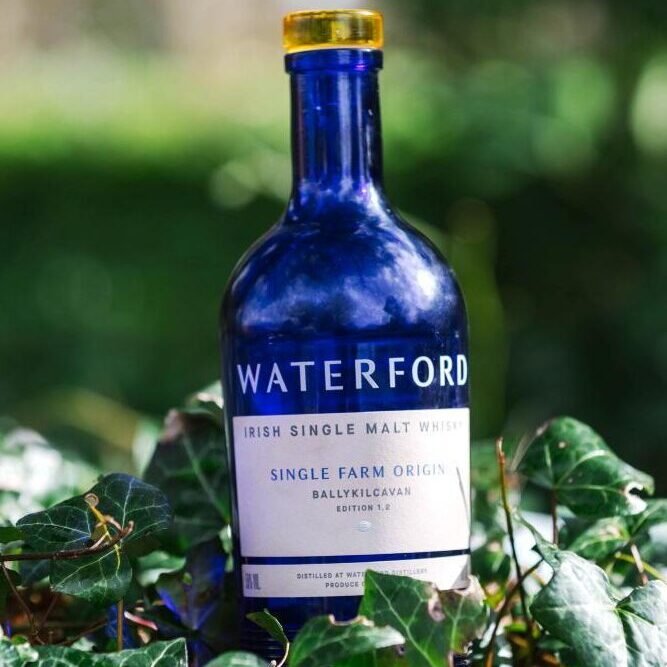

Luna 1.1 carries the legacy of Waterford Whiskey’s Arcadian Series. This series started its journey with the first launch, Organic: GAIA 1.1 – According to the Head Distiller’s (Waterford) observation for Organic GAIA 1.1:
- Appearance: Golden honey with viscous oils
- Nose: Orange zest, malty figs, seaweed, hay in the field after a light rain, salted caramel, peppermint, rosewater, freshly turned soil.
- Taste: Heat and zesty pepper on the tongue, cloves, figs, oiliness that dries in the mouth, cherries, butterscotch, pears, malty, layers of spice.
- Finish: Long and zesty oiliness that dries, but leaves you chewing; a sweetness that comes right at the end.
With the predecessor being so detailed and positively reviewed in terms of flavour, loved by the consumers. All I can say is – Be on the lookout for Luna 1.1!
Co-existence of the expression ‘Biodynamic’ with Waterford.
‘The farm as an organism’ concept by Austrian scientist – Dr. Rudolf Steiner eventually gave rise to the idea of biodynamic agriculture. In short, the most sustainable agriculture practices in modern day farming to restore the farm’s fertility and terroir by incorporation of crops and livestock, restoration of the farm’s biodiversity and co-ordination with three big factors- the sun, moon and planets.
“Malt whisky already is the most complex spirit in the world thanks to the barley from which it is distilled, and with a biodynamic cultivation regime there is the ultimate opportunity to enhance its flavour. At Waterford, we are on a mission to create the most complex, unique and profound whisky, and biodynamics is the next step on that journey.” – Mark Reynier
Waterford Distillery is a project by Mark Reynier located in the southeast of Ireland. The 1792 brewery converted into today’s modern world distillery is stated as a technological marvel known as ‘the Facilitator’ – the place where the convergence of grain to spirit takes place. Having worked with more than 90+ Irish growers it is eminently highlighted that all of their whiskies are made from 100% Irish grown-barley. All of the exquisite barley is stored section-wise in the wonder – structure called as ‘ The Cathedral’ – storage facility for barley with ideal and specific separate conditions (region wise).
One of the eye-catching things on Waterford’s official website is the section called as ‘Element’ where in they have divided their whole procedure into 9 phases. Each of them explaining in depth about their contribution to the grain to spirit process.
With the growing need of accepting the fact that sustainability is a very important thing to be implied in our lives. Many industries in the food and beverage sector have started taking initiatives to reduce their carbon-footprint or installing the farm-to-table concept etc. Similarly giving importance and installing the biodynamic feature truly is an exceptionally applauding endeavour by Waterford Distillery.


